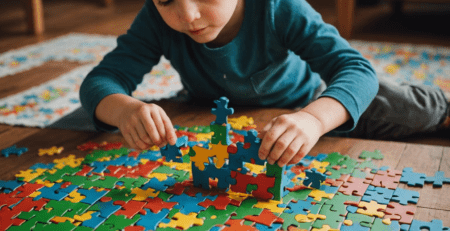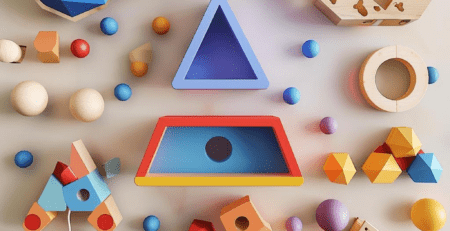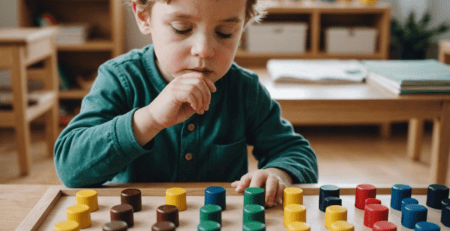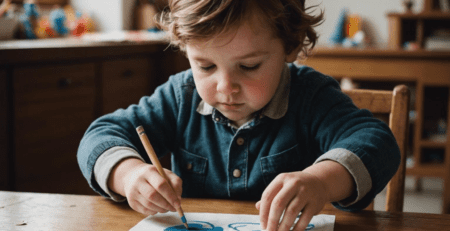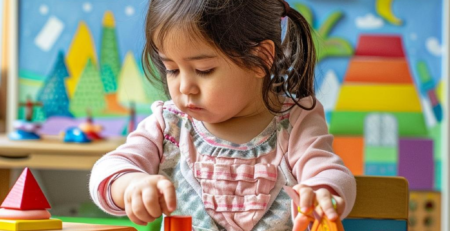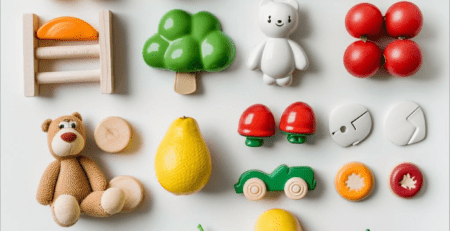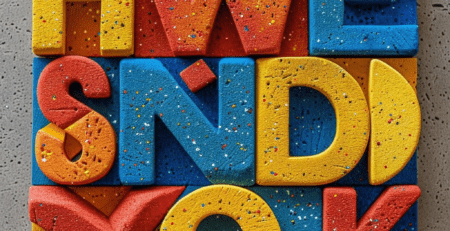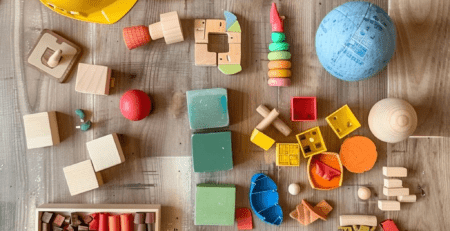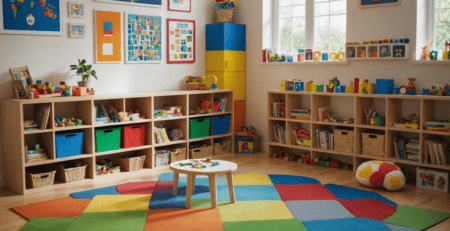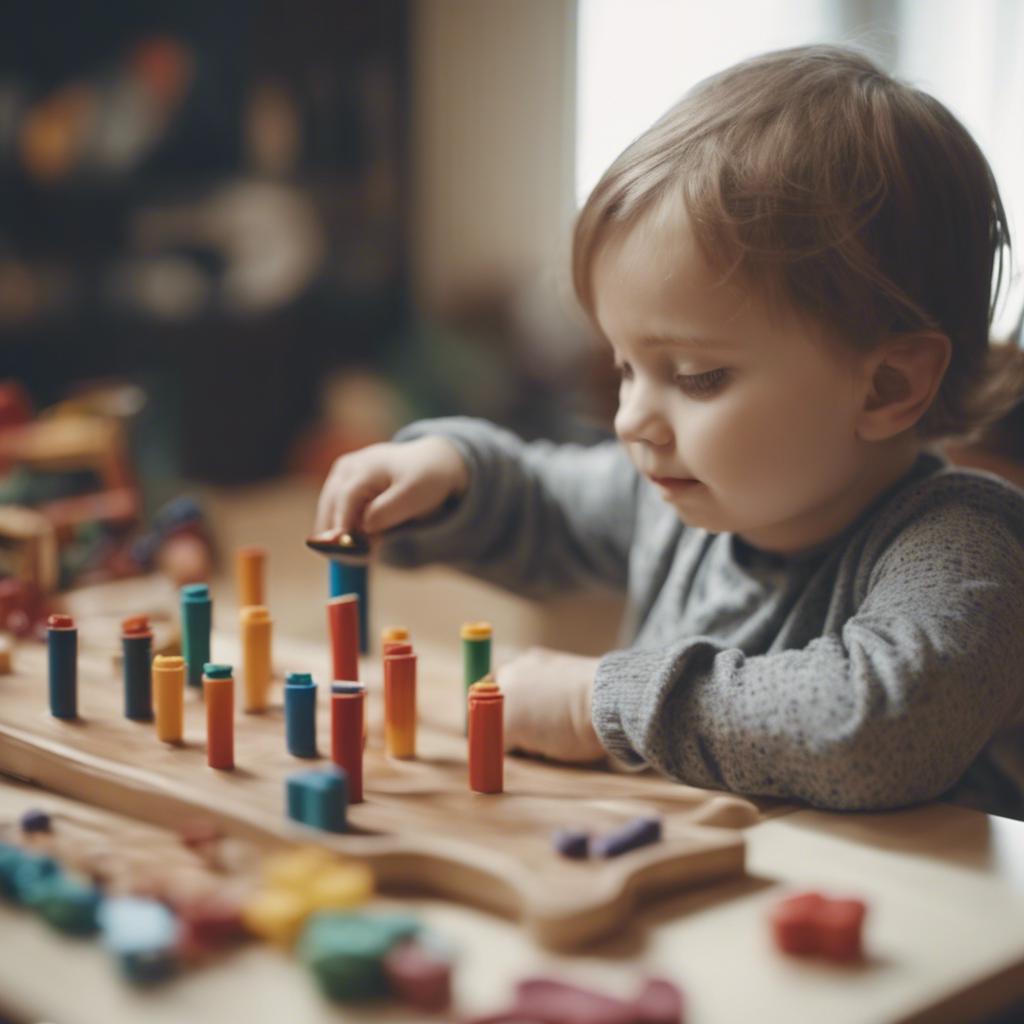
28
5 Engaging Montessori Activities for Early Learning
Enter into the world of Montessori education, where children are encouraged to explore, discover, and learn at their own pace. Montessori activities are designed to foster independence, creativity, and critical thinking skills in young learners. From practical life exercises to sensory experiences, Montessori activities offer a unique and enriching educational approach that has captivated educators and parents alike. Join us as we dive into the world of Montessori activities and explore the many ways in which they inspire and engage young minds.
Table of Contents
- Benefits of Montessori Activities for Children
- Key Principles of Montessori Education
- Recommended Montessori Activities for Different Age Groups
- Incorporating Montessori Activities at Home
- Montessori Activities to Promote Independence and Self-Reliance
- Q&A
- Future Outlook
Benefits of Montessori Activities for Children
Engaging children in Montessori activities can have numerous benefits for their overall development. These activities are designed to be hands-on and interactive, allowing children to learn at their own pace and in their own unique way. Here are some of the key benefits of incorporating Montessori activities into a child’s daily routine:
- Enhanced Problem-Solving Skills: Montessori activities often involve puzzles, sorting games, and other activities that require children to think critically and solve problems. These activities help children develop their cognitive abilities and sharpen their problem-solving skills.
- Promotes Independence: Montessori activities are designed to encourage independence and self-confidence in children. By allowing children to choose their own activities and work at their own pace, they develop a sense of autonomy and self-reliance.
- Develops Fine Motor Skills: Many Montessori activities involve the use of small objects and tools, which help children develop their fine motor skills and hand-eye coordination.
Overall, Montessori activities provide a holistic approach to learning and development, allowing children to explore and discover the world around them in a meaningful way. By encouraging independence, problem-solving, and fine motor skills, these activities set a strong foundation for lifelong learning and growth.
Key Principles of Montessori Education
Montessori education is a unique approach to learning that focuses on the individual child and their natural development. There are several key principles that guide the Montessori method, shaping the activities and environment in which children learn and grow. Here are some of the fundamental principles of Montessori education:
- Child-Led Learning: In Montessori education, the child takes the lead in their learning process. Teachers act as guides and facilitators, allowing children to explore and learn at their own pace.
- Hands-On Learning: Montessori activities emphasize hands-on, experiential learning. Children work with specially designed materials that encourage sensory exploration and discovery.
- Individualized Curriculum: Each child has their own unique learning style and pace. Montessori education tailors the curriculum to the individual needs and interests of each student.
These principles form the foundation of a Montessori education, creating an environment that fosters independence, creativity, and a lifelong love of learning.
Recommended Montessori Activities for Different Age Groups
Montessori activities are a great way to help children learn and develop essential skills at different age levels. Here are some recommended Montessori activities for various age groups:
Toddlers (Ages 1-3)
For toddlers, it’s important to focus on activities that help with fine motor skills, language development, and sensory exploration. Some recommended Montessori activities for this age group include:
- Sensory Play: Engage toddlers in sensory bins filled with rice, water, or beans to help them explore different textures and sensations.
- Movement Activities: Encourage toddlers to engage in activities such as crawling through tunnels, walking on balance beams, or playing with balls to develop gross motor skills.
- Practical Life Skills: Introduce simple activities such as pouring, pouring, and sorting to help toddlers develop independence and fine motor skills.
Preschoolers (Ages 3-5)
For preschoolers, it’s important to focus on activities that help with social skills, problem-solving, and pre-writing skills. Some recommended Montessori activities for this age group include:
- Math Activities: Introduce preschoolers to activities such as counting beads, sorting objects by color or size, and matching games to help them develop early math skills.
- Language Activities: Engage preschoolers in activities such as storytelling, rhyming games, and matching picture cards to help them develop language and literacy skills.
- Practical Life Skills: Continue to focus on practical life skills such as pouring, scooping, and food preparation to help preschoolers develop independence and fine motor skills.
Elementary Age (Ages 6-12)
For elementary-aged children, it’s important to focus on activities that help with critical thinking, independence, and self-discipline. Some recommended Montessori activities for this age group include:
- Science Experiments: Encourage elementary-aged children to engage in hands-on science experiments to help them develop critical thinking and problem-solving skills.
- Practical Life Skills: Continue to emphasize practical life skills such as cooking, gardening, and cleaning to help children develop independence and responsibility.
- Cultural Activities: Introduce children to activities such as map exploration, world music, and art projects from different cultures to help them develop an appreciation for diversity and global awareness.
Incorporating Montessori Activities at Home
Montessori activities are a great way to encourage independent learning and creativity in children. By incorporating these activities into your daily routine at home, you can help your child develop important skills such as concentration, coordination, and a love for learning. Here are some creative ways to incorporate Montessori activities into your home:
Create a Montessori-inspired learning environment: Designate a specific area in your home for Montessori activities. This could be a small corner of a room or a shelf with open-ended Montessori materials that your child can easily access. Incorporate natural materials such as wood, metal, and glass to encourage tactile exploration and sensory experiences.
Introduce practical life activities: Encourage your child to participate in everyday tasks such as pouring water, sweeping the floor, or washing dishes. These activities help children develop coordination, concentration, and a sense of responsibility. Create a simple, child-friendly kitchen area where they can safely practice these skills.
Offer open-ended toys and materials: Provide your child with a variety of open-ended toys and materials such as blocks, puzzles, beads, and art supplies. These materials encourage creativity, problem-solving, and imagination. Rotate these materials regularly to keep the environment fresh and engaging for your child.
| Montessori Activity | Benefits |
| Practical life activities | Develop coordination and responsibility |
| Open-ended toys and materials | Encourage creativity and problem-solving |
Montessori Activities to Promote Independence and Self-Reliance
Montessori education is centered around the idea of promoting independence and self-reliance in children. By providing them with activities that encourage these qualities, children can develop essential life skills and grow into confident individuals. Here are some Montessori activities that you can incorporate into your child’s daily routine to foster independence and self-reliance:
- Dressing Frames: Setting up dressing frames for activities such as buttoning, zipping, and tying shoelaces can help children learn to dress themselves independently.
- Practical Life Skills: Engage children in practical life activities such as pouring their own drinks, setting the table, and using child-sized cooking utensils to encourage self-sufficiency.
- Sensory Bins: Create sensory bins with materials like rice, beans, or water, along with scoops and containers, to promote exploration and decision-making in a controlled environment.
- Self-Care Tasks: Teach children to take care of themselves by incorporating activities like toothbrushing, hair brushing, and hand washing into their daily routine.
| Activity | Description |
|---|---|
| Dressing Frames | Helps children learn to dress themselves independently by practicing skills like buttoning and zipping. |
| Practical Life Skills | Encourages self-sufficiency by involving children in everyday tasks such as setting the table and pouring drinks. |
| Sensory Bins | Promotes exploration and decision-making through hands-on sensory experiences with different materials. |
| Self-Care Tasks | Teaches children to take care of themselves by incorporating activities like toothbrushing and hand washing into their routine. |
Q&A
Q: What are Montessori activities?
A: Montessori activities are hands-on, self-directed learning activities designed to promote independence, curiosity, and a love of learning in children. These activities are based on the principles of the Montessori method, which emphasizes freedom within limits and respect for a child’s natural psychological, physical, and social development.
Q: How do Montessori activities promote learning?
A: Montessori activities promote learning by allowing children to explore and interact with materials at their own pace. This fosters a sense of independence and self-motivation, as children have the freedom to choose activities that interest them and work on them for as long as they like. These activities also emphasize practical life skills, sensorial exploration, language development, and mathematical concepts.
Q: What are some examples of Montessori activities?
A: Examples of Montessori activities include pouring and transferring activities, sensory bins, letter and number recognition activities, practical life activities such as washing and folding clothes, and sensorial activities such as matching and sorting. These activities are designed to engage children’s senses and provide opportunities for hands-on learning.
Q: How can parents incorporate Montessori activities at home?
A: Parents can incorporate Montessori activities at home by setting up a prepared environment with child-sized furniture, open shelves with accessible materials, and a mix of natural and educational toys. They can also encourage independence and self-directed learning by allowing their children to choose their own activities and providing guidance and support as needed.
Q: What are the benefits of Montessori activities for children?
A: The benefits of Montessori activities for children include the development of independence, self-discipline, and a love of learning. These activities also promote the development of fine and gross motor skills, social skills, and cognitive abilities. By engaging in hands-on, self-directed learning experiences, children develop a sense of confidence and curiosity that will serve them well throughout their lives.
Future Outlook
In conclusion, Montessori activities provide children with a unique and effective approach to learning and development. By allowing children the freedom to explore and discover at their own pace, while engaging in hands-on activities, Montessori education fosters a love for learning and a sense of independence. These activities not only stimulate a child’s cognitive and physical development, but also nurture their creative and social skills. It is clear that the Montessori method offers a holistic and enriching educational experience for children, and it is no wonder that it continues to be a popular choice for many parents and educators. Embracing the principles of Montessori education can truly have a profound impact on a child’s growth and overall well-being. So, whether you are a parent, teacher, or caregiver, consider incorporating Montessori activities into your child’s learning experience and witness the amazing benefits first-hand. Thank you for reading and best of luck on your Montessori journey!

